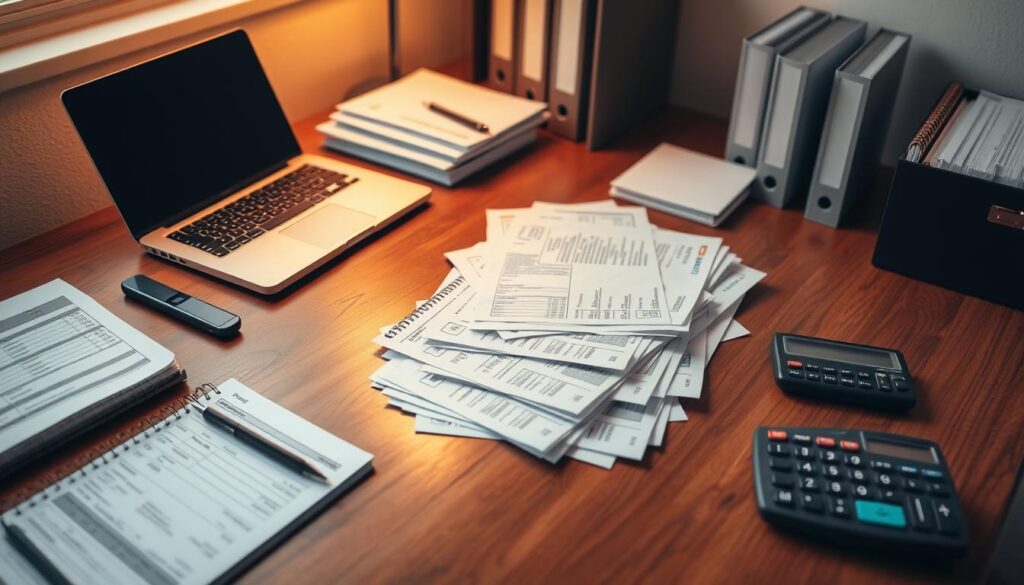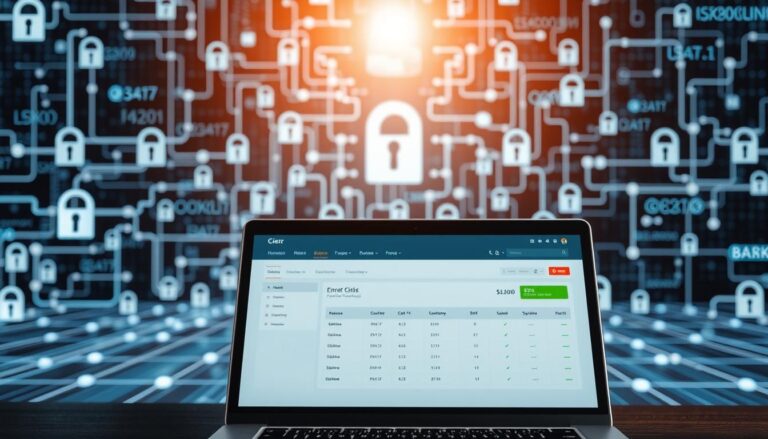Fixed vs. Variable Expenses: Understanding the Difference
Managing personal finances effectively is crucial for achieving life goals, and it begins with creating a budget. A key aspect of budgeting is distinguishing between different types of expenses. Knowing how to categorize expenses can help individuals make informed financial decisions.
Distinguishing between expenses that remain constant and those that fluctuate is vital. This distinction enables individuals to allocate their resources more efficiently, ensuring they are prepared for both expected and unexpected expenses.
By understanding the nature of their expenses, individuals can better navigate their financial obligations and make progress toward their financial goals.
What Are Fixed Expenses?
The foundation of a stable financial plan lies in understanding fixed expenses. These are costs that remain the same in price and frequency, providing a predictable foundation for your budget. Examples of such expenses are crucial in identifying where your money is going each month.
Common fixed expenses include rent or mortgage payments, car payments, insurance premiums, and subscription services. These expenses are typically non-discretionary, meaning they are necessary for maintaining a basic standard of living.
Understanding these expenses is key to managing your finances effectively. By identifying your fixed expenses, you can better plan your budget and make informed decisions about your money.
What Are Variable Expenses?
Understanding variable expenses is essential for effective financial planning. Variable expenses are costs that can change regularly, making it challenging to predict them accurately.
Examples of variable expenses include groceries, gas, entertainment, and travel expenses. These expenses can vary significantly from one period to another, depending on several factors such as lifestyle changes, personal choices, and external circumstances.
Examples of Variable Expenses
Some common examples of variable expenses are:
Groceries: The amount spent on groceries can vary based on dietary choices, sales, and seasonal availability of products.
Gas: Gas expenses can fluctuate based on travel needs, fuel prices, and the efficiency of the vehicle.
Entertainment: Expenses related to dining out, movies, and hobbies can change based on personal preferences and financial priorities.

By understanding and tracking these variable expenses, individuals can better manage their finances and make informed decisions about their spending habits.
Fixed vs. Variable Expenses: Understanding the Difference
Understanding the distinction between fixed and variable expenses is crucial for effective financial management. The key difference between the two lies in their predictability and variability.
Fixed expenses remain the same every month, providing a predictable financial obligation. Examples include rent, mortgage payments, and insurance premiums. On the other hand, variable expenses can fluctuate from month to month, making them less predictable. Groceries, entertainment, and travel expenses fall into this category.
Recognizing the differences between fixed and variable expenses can help you manage your budget more effectively. By understanding which expenses are fixed and which are variable, you can make informed decisions about how to allocate your resources and plan for the future.
Moreover, distinguishing between these two types of expenses allows you to identify areas where you can cut back on variable expenses to accommodate changes in your financial situation or to save for long-term goals.
How to Identify and Categorize Your Expenses
Understanding how to identify and categorize expenses is crucial for effective financial management. To start, review your bank statements to get a clear picture of your spending habits.
Categorizing Expenses: Begin by grouping your expenses into fixed and variable categories. Fixed expenses include rent, mortgage payments, and insurance premiums, which remain relatively constant each month.

Variable expenses, on the other hand, can fluctuate and include costs such as groceries, entertainment, and travel. By understanding the difference between these categories, you can better manage your finances.
Tips for Effective Categorization: Be thorough and consistent when categorizing your expenses. Consider using budgeting software or apps to streamline the process and gain insights into your spending patterns.
By identifying and categorizing your expenses accurately, you can make informed decisions about your financial resources and achieve your financial goals.
The Role of Fixed and Variable Expenses in Financial Planning
Understanding the distinction between fixed and variable expenses is vital for effective financial planning. By recognizing the difference between these two types of expenses, individuals can create a more realistic budget that aligns with their financial goals.
Fixed expenses remain constant month-to-month, such as rent or mortgage payments, insurance premiums, and subscription services. These expenses are predictable and easier to budget for. On the other hand, variable expenses can fluctuate and include costs such as groceries, entertainment, and travel. Understanding the variability of these expenses helps in making adjustments to stay within budget.
Incorporating both fixed and variable expenses into a financial plan allows for a comprehensive approach to budgeting. It enables individuals to prioritize their spending, make informed financial decisions, and achieve their long-term financial objectives. By regularly reviewing and adjusting their budget, individuals can better manage their finances and respond to changes in their financial situation.
Effective financial planning involves not just tracking expenses but also understanding how fixed and variable expenses impact overall financial health. By doing so, individuals can make strategic decisions about their money, ensuring they are on track to meet their financial goals.
Managing Fixed Expenses Effectively
To achieve financial freedom, it’s essential to have a solid grasp on managing your fixed expenses. Fixed expenses, such as rent, utilities, and loan payments, are regular and unavoidable costs that can significantly impact your financial stability.
Strategies for Managing Fixed Expenses
One effective strategy is to negotiate with service providers. For instance, you can contact your cable or internet service provider to negotiate a better rate. Many companies are willing to work with customers to retain their business.
Another approach is to consider refinancing loans. Refinancing can help lower your monthly payments by extending the loan term or securing a lower interest rate. This can be particularly beneficial for mortgages and car loans.

Understanding the difference between fixed and variable expenses is crucial for effective financial planning. By identifying and managing your fixed expenses, you can free up more money in your budget for savings and investments.
By implementing these strategies, individuals can better manage their fixed expenses, leading to improved financial health and stability.
How Economic Changes Impact Your Expense Types
Understanding how economic changes influence fixed and variable expenses is crucial for effective budgeting. Economic fluctuations, such as inflation or recession, can significantly impact both types of expenses, necessitating adjustments in financial planning.
Economic changes like inflation can increase the cost of living, affecting variable expenses such as food and transportation. During inflationary periods, the prices of goods and services rise, potentially increasing variable expenses. Conversely, during a recession, while prices might decrease, the overall economic uncertainty might lead to reduced spending across the board, affecting both fixed and variable expenses.
Fixed expenses, such as rent or mortgage payments, generally remain stable, but they can be indirectly affected by economic changes. For instance, during a recession, even if your rent doesn’t change, the overall decrease in income or increase in unemployment rates can impact your ability to pay it. On the other hand, variable expenses can be more directly influenced by economic conditions, as they are often tied to consumption patterns that change with economic stability.
To manage expenses effectively during economic changes, it’s essential to monitor your financial situation closely and adjust your budget accordingly. This might involve reducing variable expenses during times of economic uncertainty or finding ways to mitigate the impact of inflation on your expenses.
By staying informed about economic trends and understanding how they can impact your expenses, you can make more informed financial decisions and better navigate economic fluctuations.
Conclusion
Effectively managing personal finances requires a clear understanding of the difference between fixed and variable expenses. By distinguishing between these two categories, individuals can better navigate their financial obligations and make informed decisions about their money.
Fixed expenses, such as rent and mortgage payments, remain constant, providing a predictable foundation for budgeting. Variable expenses, including entertainment and groceries, can fluctuate, requiring flexibility in financial planning.
Recognizing the distinction between fixed vs. variable expenses enables individuals to allocate their resources more efficiently, prioritize their spending, and achieve financial stability. By doing so, they can respond to economic changes and unexpected expenses, ultimately securing their financial well-being.
In conclusion, grasping the concept of fixed vs. variable expenses is crucial for effective financial management. By understanding the difference, individuals can create a more realistic budget, make smart financial decisions, and achieve long-term financial goals.






